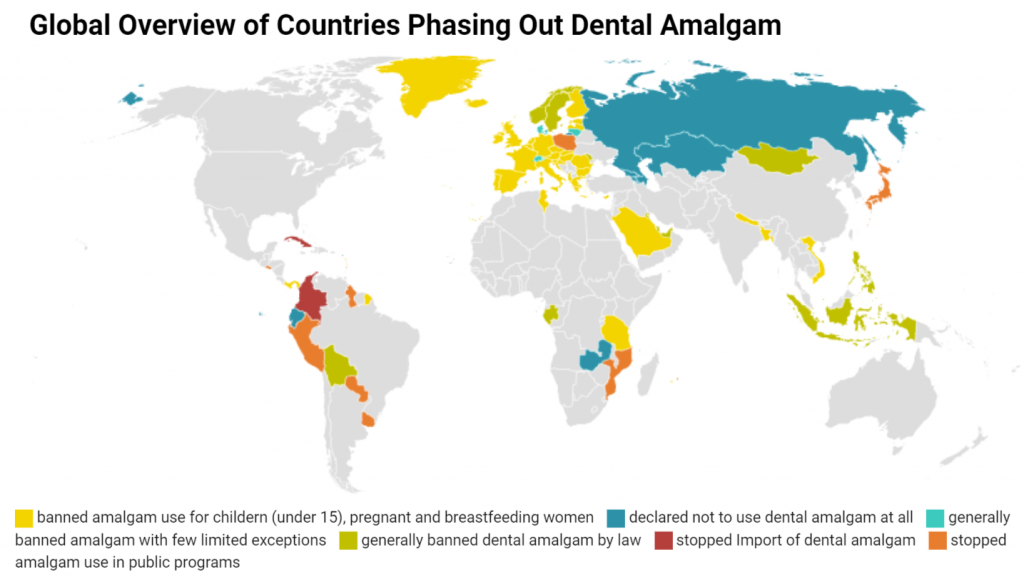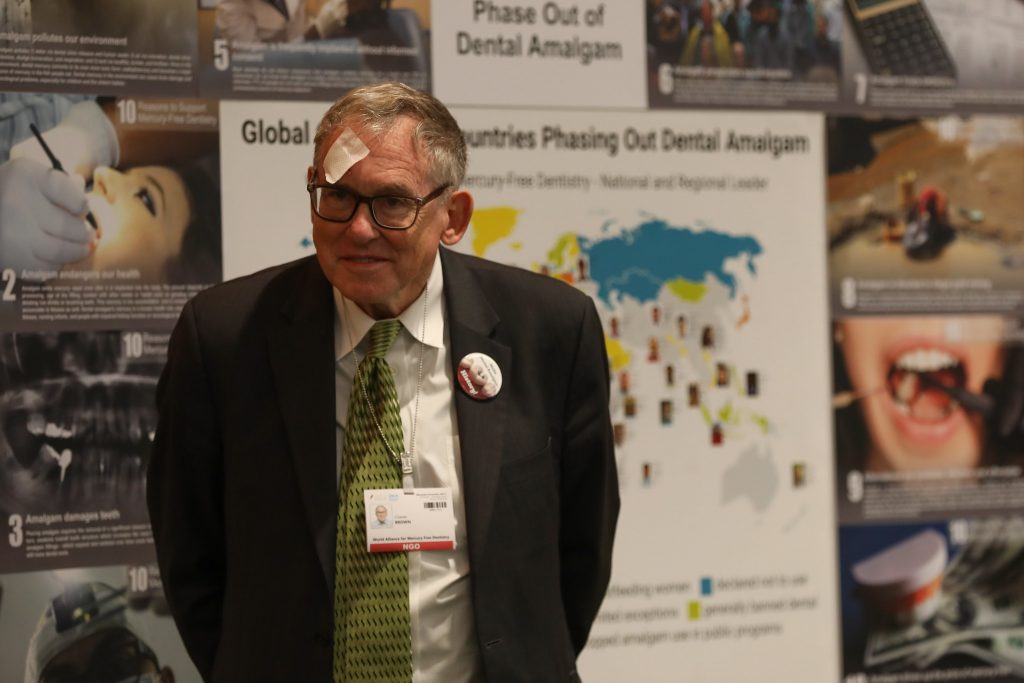by John Michinko, 11/2/2023
The story of this blog is that I have just been recently flooded (and pretty enlightened) by information regarding the dental industry and the reluctance of the dental administrations (DA’s) around the world to finally make the mercury-free shift. On the day 3 of the convention, myself and several others decided to go to the mercury in dentistry knowledge lab, where we learned about the general progress around the world according to NGO representatives from the World Alliance on Mercury-Free Dentistry.

We got to hear about the different stages of progress on phase out in different regions; the overall set goal of the total global phase-out for dental amalgam is 2030, but surprisingly a lot of countries have already made great strides to meet the goals well before that date. Gabon, for example, just amended the amalgam ban detailed in Annex A of the convention. This is a huge stride for them, considering they actually just recently opposed the phase-out several years ago. We heard from a representative in the South American region, who noted great progress in several countries, including Chile and some others who just recently starting voicing their approval of the phase-out in COP-5. The representative made a great quote in saying that “We have to think of these things as a process. We can’t expect one thing to be ready even though we have been waiting, and we may have to wait even longer, but I still believe we are moving forward.” It’s hard to get people, especially those with great experience in dental practice, to switch from what they’re used to. Things won’t happen overnight, but I think we’re seeing how the voice of NGO’s really make an impact, and it really showed in the knowledge lab. They’ve made governments aware that alternatives to amalgam DO exist, and there are no reasons to not make the change. They also have to be careful when it comes to economic classes; alternatives to dental fillings should be made to all people, not just for the rich and mercury for the poor.

The president of the World Alliance, Charlie Brown, has done especially remarkable work in organizing the alliance. When he got up to speak, he let party representatives get up and talk about the progress they’ve made, which was his way of showing the progress of him and his colleagues. After the talk, we decided to go up to him (he was offering some cool pins too) and start a conversation, after some brief small talk about Upstate New York and bottles of mercury, he invited us to come speak with him over coffee the next morning. Myself and Gary took him up on the offer, which led us to having a great conversation about dentistry and much more. We learned he was an attorney general in West Virginia, not to mention has met with dental administrations around the globe, expanding his network and alliance against mercury in dentistry. Gary connected with him via his lingual knowledge, and we got to listen to Brown’s advice about the use of language and how it changes over time (not to mention how important language use is regarding politics). Brown noted that speaking the first language of those you’re trying to reach is important, even if broken, because it speaks to their heart and they know you’re putting effort into learning their language.
We talked about the struggle of getting professions to switch practices that they are used to; it’s difficult to tell someone they are wrong when they’re they ones that are supposed to be experts, especially in the medical field. Brown wants DA’s to realize that there is no consumer demand for mercury fillings as well as no substantial economic benefits. On the contrast from the medical field, manufacturing plants tend to be more progressive in working towards health benefits in their products. We laughed about how ironic that is, because you’d figure the only thing manufacturers see are dollar signs; like, who’s going to buy my product? You’d think it’d be the reverse, but it isn’t that simple. I related to this idea he was forming, having worked in manufacturing engineering; I understand how manufacturers tend to act and mold projects to avoid any future blows to the company from an ethical standpoint. The ironic part about those projects is they tend to be the easiest, however highest priority among the company. When it came to those projects that I personally had to work on, I always felt like it would get in the way of doing the fun projects (I still had to do them anyway for the reasons I just talked about). They’re only there to avoid any bite-backs in the future for the company. Sure, it’s my little internship experience and nowhere near the scale of the dental amalgam issue, but it connects with what Brown was saying and I think I’ll continue to see that as far as I work in manufacturing & aerospace engineering in general. Point is, it’s difficult to move experts in a profession than it is to scare a manufacturer out of doing something that’ll get them in trouble. In all, that’s what makes the dental amalgam problem so difficult, at least in Brown’s eyes. I wish I could include all the other things we talked about, but this blog might be a little too long… so I’ll wrap it up with that thought. In all, a great conversation, and we wished him luck in the fight and we support the movement!